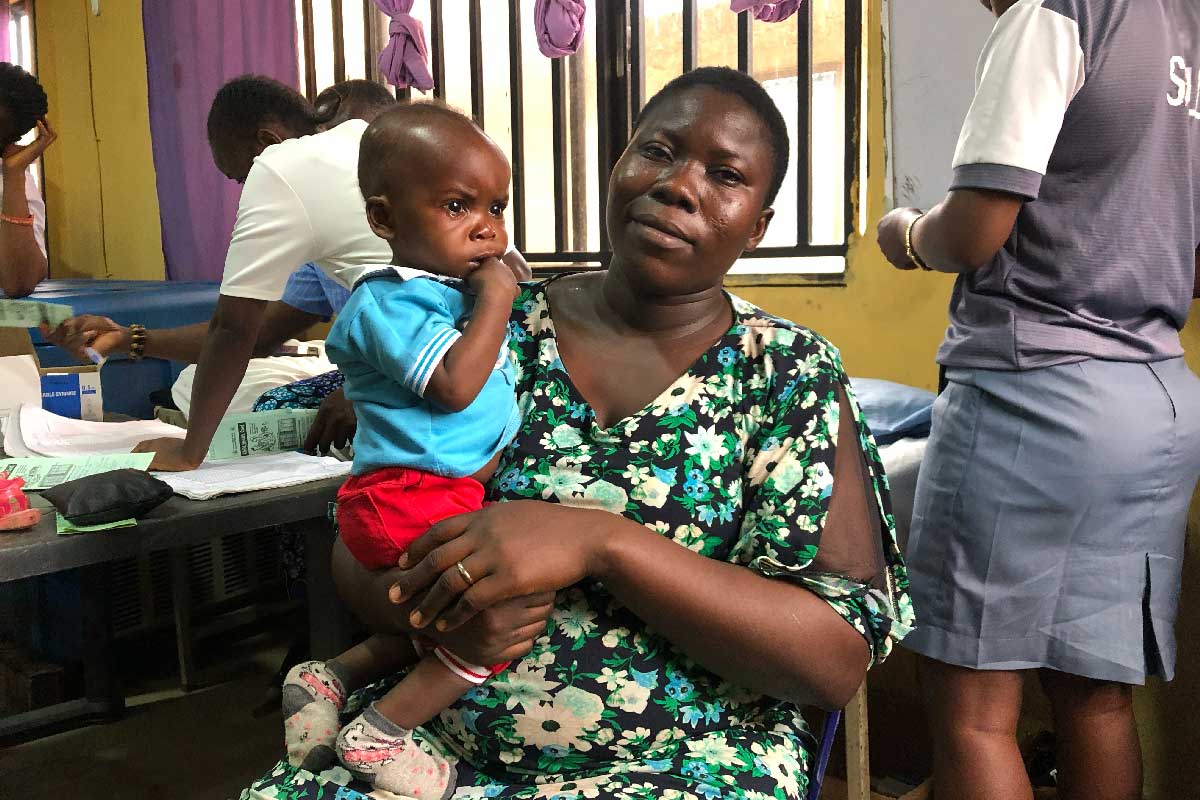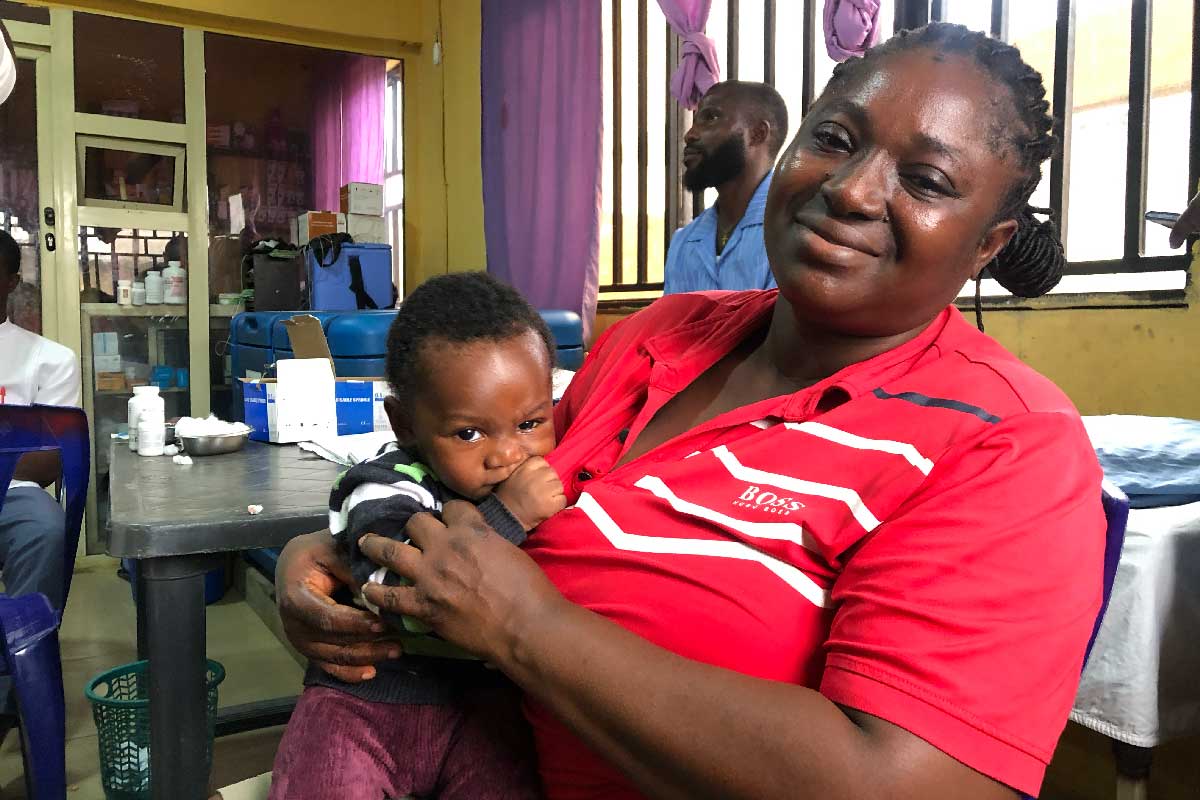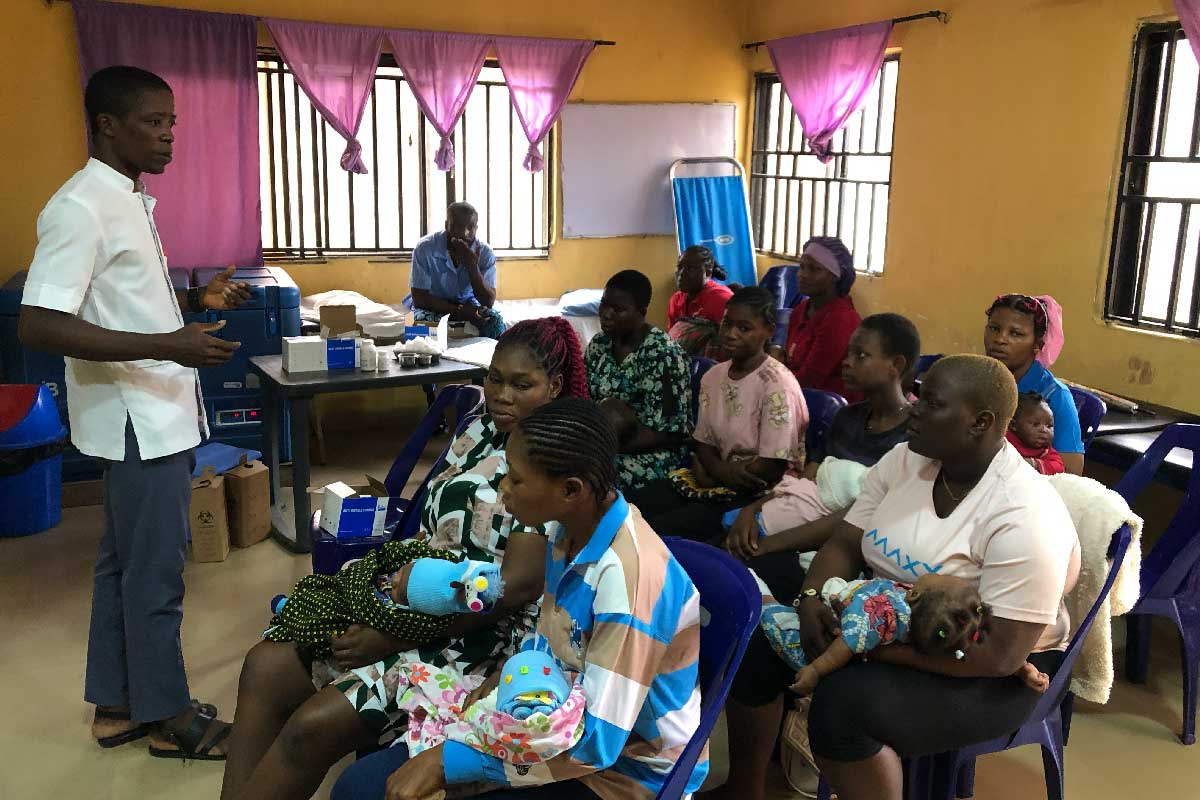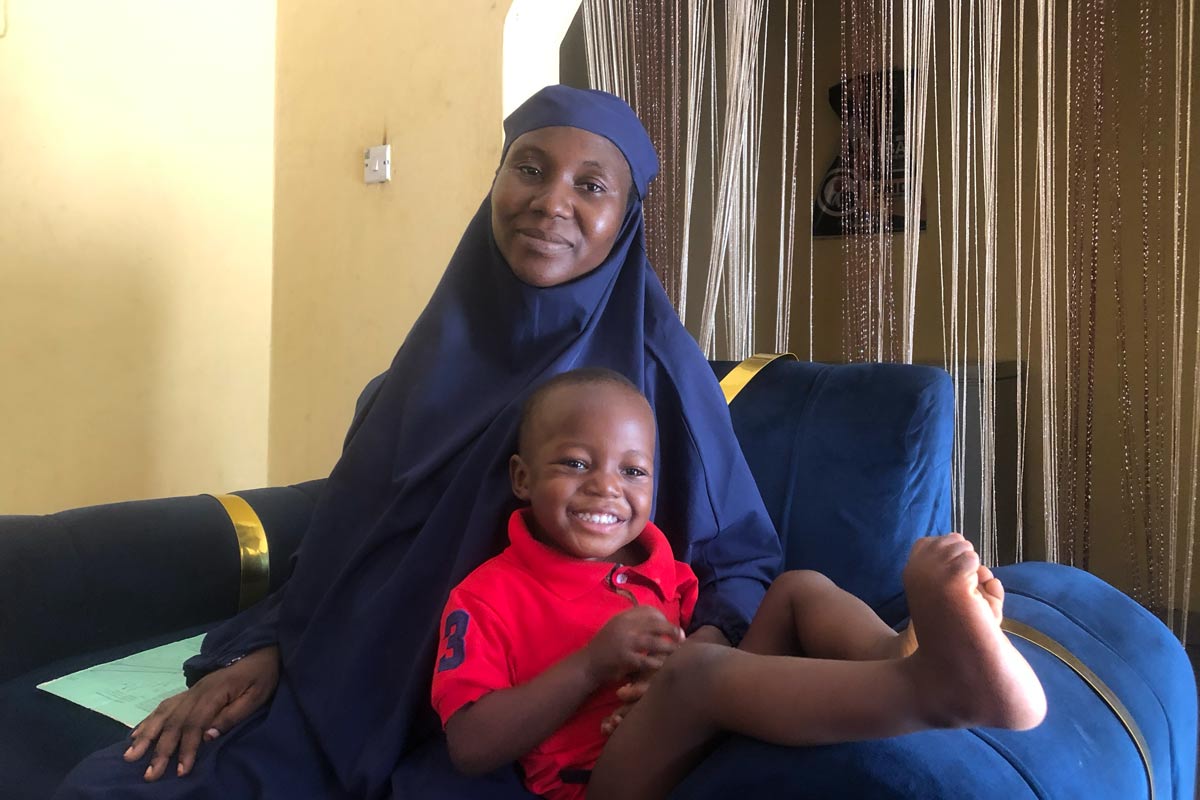"Relief" for mothers in Bayelsa state as malaria vaccine makes waves
Cases among children appear to be in decline, say Bayelsa health workers and experts. In fact, when Akaba Primary Healthcare Centre in Bayelsa saw a spike of malaria cases in June, the majority of patients were – abnormally – adults.
- 7 November 2025
- 4 min read
- by Ekpali Saint

On a rainy Wednesday morning this past October, nine-month-old Divinewealth received his second malaria vaccine at Akaba Primary Healthcare Centre in Nigeria’s southern Bayelsa state. His mother, 30-year-old Sandra David, called the vaccine “a big relief”. “Since I gave birth to him, I have not treated him for malaria,” she told VaccinesWork.
The cost of treatment is a heavy burden, with uncomplicated cases costing 6,000 naira (about US$ 4) in out-of-pocket expenses, by David’s estimation, and severe cases running up bills of at least 45,000 naira (about US$ 30). Many Bayelsa families take that hit. As recently as 2021, 700,000 cases were estimated to occur across the state each year.
David left the steepest cost of malaria infection unmentioned. But Wolo-wolo Tariladei, a public health expert and physician at the Federal Medical Centre in Bayelsa’s capital Yenagoa, put it directly: “Malaria is one of the common causes of death or mortality in children below the age of five because this is the age range where you tend to have severe forms of malaria.”
The mosquitoes that transmit the malaria parasite thrive in stagnant water, and Bayelsa is a coastal area, with extensive wetlands, he explained. The state is also susceptible to flooding, which further increases the risk of malaria.
“It was really bad,” confirmed Ebiye Egba Diri, routine immunisation officer at Akaba Primary Healthcare Centre. “Many children were coming down with malaria. Some children lost their lives.”
But to Diri –and David – that seems to be changing since the introduction of the vaccine a year ago.

The vaccine’s first chapter
“Vaccination is one of the pillars of modern healthcare practice,” Tariladei said, adding that the malaria vaccine “will go a long way in redefining the roadmap to a healthy society, and preventing the complications [that arise] with malaria infestation”.
But parents in Bayelsa were initially less enthusiastic than the expert.
The vaccine, which is administered in four doses between the ages of five months and 15 months of age, encountered resistance. Glory Okonji, a nurse at Akaba Primary Healthcare Centre, explained that many local mothers expressed their hesitancy in terms of religious and cultural beliefs that ultimately amounted to simple conservatism: since they never received any vaccine for malaria, their children wouldn’t either. Other parents had heard false rumours about side-effects the vaccine could cause.
In response, the state carried out multiple health campaigns to promote adoption of the vaccine. Information about the vaccine was circulated in local languages. In many communities, outreach campaigns went door-to-door. In Akaba, that’s a regular Friday occurrence, says Okonji. On these home visits, the team educates parents on the importance of the vaccine – and if the family proves willing, the eligible child is immunised on the spot.

But some mothers were still too nervous to consent, Okonji said. That led health workers with babies of their own to take them along to outreach sessions, to prove their own confidence in the jab. Okonji herself vaccinated her eight-month-old granddaughter in front of one anxious parent.
“The strategy worked,” she said. “We went for outreach in communities and we used our children as an example. We vaccinated our children during outreach. By the time they [mothers] saw our children receiving the vaccine, they brought their children forward.”
It was the personal touch that convinced Sandra David, too, who said she had initially had fears about vaccine side-effects. “I have health workers as friends; they advised me to take my child for vaccination. I brought my child for vaccination and at the end, no complications.”
So far, Okonji said the state is recording a high uptake of the vaccine. She added that in Akaba Primary Healthcare Centre, over 100 babies have received the malaria vaccine.
Have you read?
Reduction in cases
As the malaria vaccine roll-out continues, Diri says the state is beginning to see the impact of the vaccine on children. When an uptick in malaria cases hit Akaba Primary Healthcare Centre in June, the patients were mostly adults.
“Malaria has now become resistant to malaria medications. Adults were coming down with malaria in June. After treatment, you will find out the malaria is still there,” she said. “But children who received the vaccine were not affected.
“We would have recorded so many deaths if children were not vaccinated,” she speculates. “The [malaria] vaccines came at the right time.” Tariladei, too, says there are signs that cases among children are reducing in Yenagoa, which he hopes bodes well for state-wide health and development indicators in the future.
Akaba mother Morris Martha, whose youngest recently received a third dose of the vaccine, takes her own family’s experience as testimony to the efficacy of the vaccine. “I was excited when I heard of the malaria vaccine,” she said. “[But] there was no malaria vaccine when I gave birth to my [first] two children. My second child gets sick almost every month with malaria. I am not happy spending money to treat my other two children. I will be happy if they introduce malaria vaccines for adults.”






